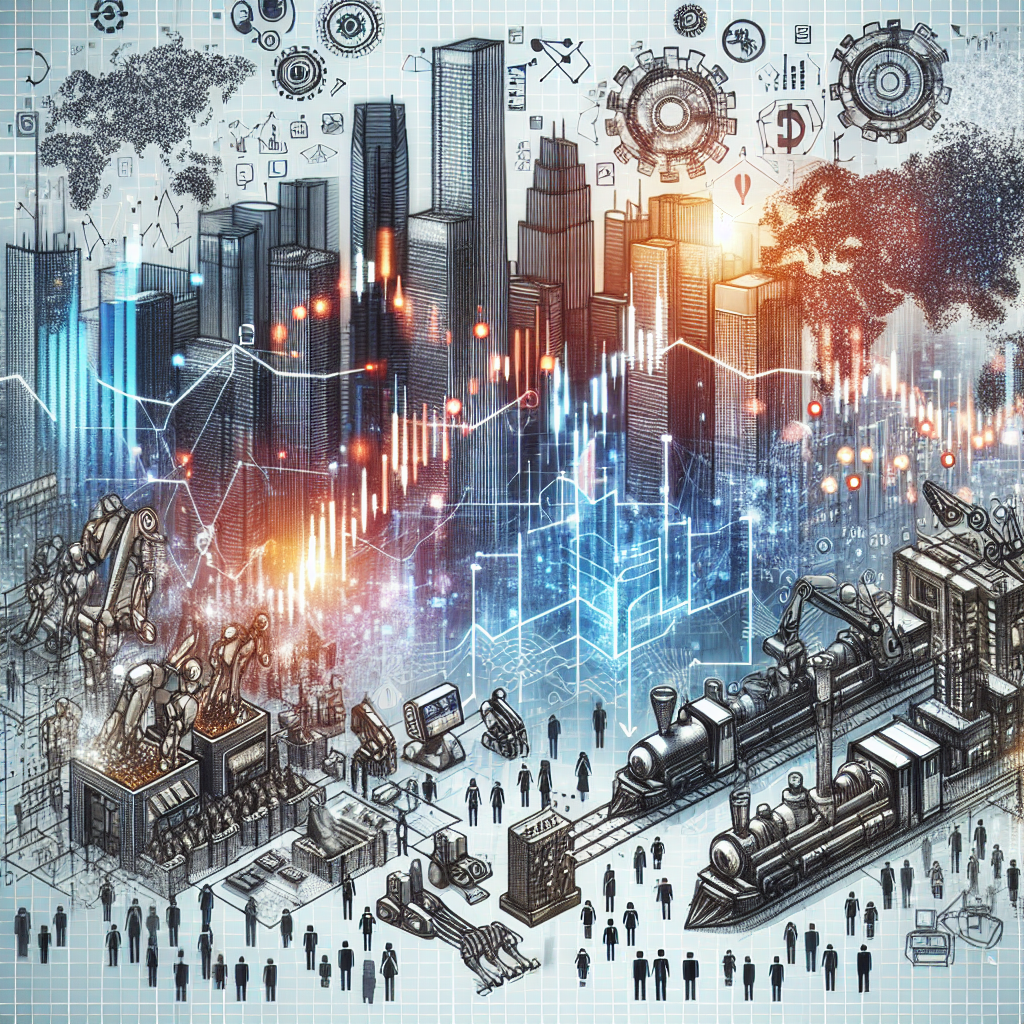Artificial General Intelligence (AGI) is a rapidly evolving technology that is transforming industries from finance to manufacturing. AGI refers to a type of artificial intelligence that can understand, learn, and apply knowledge in a wide range of domains, much like a human being. This level of intelligence is often considered the pinnacle of AI development, and its potential applications are vast and far-reaching.
In the finance industry, AGI is revolutionizing how financial institutions operate. With its ability to analyze vast amounts of data and make complex decisions, AGI is being used to improve risk management, fraud detection, and customer service. For example, banks are using AGI-powered algorithms to analyze customer data and provide personalized financial advice. This not only helps customers make better financial decisions but also allows banks to offer more targeted products and services.
In the manufacturing industry, AGI is being used to optimize production processes and improve efficiency. AGI-powered robots are being used to automate tasks that were previously performed by humans, such as assembly line work and quality control. This not only increases productivity but also reduces the risk of human error and improves product quality. AGI is also being used to predict maintenance needs and optimize supply chain operations, leading to cost savings and increased competitiveness.
AGI is also transforming other industries, such as healthcare, transportation, and retail. In healthcare, AGI is being used to analyze medical images, develop personalized treatment plans, and improve patient outcomes. In transportation, AGI is being used to optimize route planning, reduce traffic congestion, and improve safety. In retail, AGI is being used to personalize customer experiences, optimize pricing strategies, and improve inventory management.
Despite the many benefits of AGI, there are also concerns about its impact on jobs and society as a whole. Many fear that AGI will lead to widespread job displacement, as machines take over tasks that were previously performed by humans. There are also concerns about the ethical implications of AGI, such as bias in decision-making algorithms and the potential for misuse by malicious actors.
To address these concerns, it is important for companies and policymakers to develop ethical guidelines and regulations for the use of AGI. This includes ensuring transparency and accountability in AI systems, as well as promoting diversity and inclusivity in AI development. Companies should also invest in reskilling and upskilling programs to help workers adapt to the changing job market and ensure that the benefits of AGI are shared equitably.
In conclusion, AGI is transforming industries from finance to manufacturing and beyond, with the potential to revolutionize how we work, live, and interact with technology. While there are challenges and concerns associated with the adoption of AGI, the benefits are clear, and it is crucial for companies and policymakers to work together to ensure that AGI is used responsibly and ethically.
FAQs
Q: What is the difference between AGI and other types of AI?
A: AGI refers to a type of artificial intelligence that can understand, learn, and apply knowledge in a wide range of domains, much like a human being. This level of intelligence is often considered the pinnacle of AI development, as it can perform tasks that require a high degree of cognitive ability. Other types of AI, such as narrow AI, are designed to perform specific tasks, such as image recognition or natural language processing.
Q: How is AGI being used in the finance industry?
A: In the finance industry, AGI is being used to improve risk management, fraud detection, and customer service. AGI-powered algorithms are being used to analyze customer data and provide personalized financial advice, as well as to optimize trading strategies and predict market trends.
Q: How is AGI being used in the manufacturing industry?
A: In the manufacturing industry, AGI is being used to optimize production processes, automate tasks, and improve efficiency. AGI-powered robots are being used to perform tasks that were previously performed by humans, such as assembly line work and quality control, as well as to predict maintenance needs and optimize supply chain operations.
Q: What are some of the ethical concerns associated with AGI?
A: Some of the ethical concerns associated with AGI include bias in decision-making algorithms, the potential for job displacement, and the misuse of AI by malicious actors. It is important for companies and policymakers to address these concerns by developing ethical guidelines and regulations for the use of AGI, as well as investing in reskilling and upskilling programs to help workers adapt to the changing job market.

